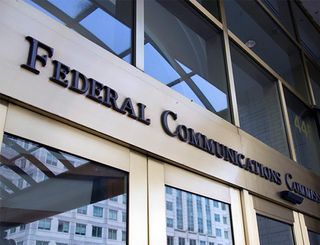FCC Eliminates Broadcast EEO Reporting Form

The FCC has voted unanimously, though with two concurrences, to eliminate the obligation for broadcasters to file midterm reports on EEO compliance, pointing out the info is, or soon will be, available elsewhere. But Democrats on the commission signaled there were substantive issues that should take precedence.
It was yet another in FCC chair Ajit Pai's series of media regulation reform moves, and its proposal to eliminate a form for information almost all of which--and soon all of which--are available in a broadcasters online public file, seemed pretty pro forma, as it were. And, in fact, there was not a single opposing comment in the period leading up to the vote.
Related: FCC Plans Vote on Excising EEO Midterm Report
The EEO item eliminated the requirement that broadcast stations file the midterm report--in approximately year four of an eight-year license term--because almost all the information in that report about broadcasters' compliance with EEO rules is available in the FCC's online public inspection file.
The only information from the report not online is whether a radio station has enough employees to be subject to the midterm review to cover that base, the report and order requires TV stations to provide info on staffing size before uploading the online EEO public file report, so that online file will have all the info that had been in the report.
But the vote turned out to be a chance for new Democratic FCC commissioner Geoffrey Starks to plant a stake in the ground both on the issue of EEO compliance and the chairman's efforts to eliminate what he, and others, argue are outdated regs.
In a lengthy statement, whose sentiment was clearly shared by senior Democrat Jessica Rosenworcel, Starks suggested that the FCC needed to think more broadly about its forest of obligations rather than focus on the individual trees of outdated forms.
Broadcasting & Cable Newsletter
The smarter way to stay on top of broadcasting and cable industry. Sign up below
Specifically, he complained that his efforts to get the FCC to resolve a 15-year-old delay in collecting information from broadcasters on the gender and diversity of their staffs had been rebuffed.
While the FCC was jettisoning the form 397 obligation to file midterm EEO reports, it has yet to resolve the issues with form 395B collection of that diversity information. It has been held up for 15 years over the issue of whether the info should be confidential.
Starks said the FCC should have prioritized resolving that so that the information collection, a congressional mandate, could resume. Instead, Pai agreed to release a notice of inquiry on the issue within 90 days--Rosenworcel and Starks had wanted 30 days.
He suggested that while the FCC was focused on scrapping forms, some basic obligations to oversee broadcaster EEO efforts were remaining unmet. He pointed to the "unacceptably low" employment of people of color that has not improved in recent years. He said the stakes were high and the FCC can do better. He also wasn't sure why filing a form every eight years, one that took perhaps a half hour to complete, was such a burden.
He said that he was all for modernizing regs in principle but that that cannot be the whole story. He promised to approach all the modernization items, no matter how narrow, by putting them in the context of whether the FCC was meeting its larger obligations.
In the case of form 395B and its data collection, he said while that remains unresolved, the FCC's ability to understand the diversity of the workforce remains compromised, an error the FCC's action does not correct. The then added a phrase that invoked the "how long, too long" cadences of the civil rights movement, saying: If not now, when?"
Commissioner Rosenworcel agreed with Starks' assessment, which was the reason both concurred in the item rather than voting the more emphatic "aye": "We are told this is not the right time to address these matters," she said. "Only at my request—along with that of my current colleague Commissioner Starks—do we have a promise to do this another day. Down the road. In yet another rulemaking, three months hence....So while I appreciate the practical decision to eliminate Form 397, I am disappointed that we put the broader effort to address discriminatory practices related to media ownership off for the future.
Pai focused on the item and getting rid of a redundant reporting requirement. But he also said it had no impact on the FCC's ability to enforce EEO rules, the clear commitment to which was demonstrated by the FCC's move last year of EEO oversight from the Media Bureau to the Enforcement Bureau.
Commissioner Michael O'Rielly, who advocated for the excision, pointed out that the midterm review by the FCC was not affected, only the reporting requirement.
"This is a crude and cruel denial of the Commission's responsibility to encourage diversity in broadcast industry employment," said Michael Copps, former FCC chair and currently Common Cause special advisor. "The FCC is statutorily mandated to conduct mid-term reviews of broadcast licensees’ EEO compliance. Rather than fulfill its mandate, the Commission eliminates the reporting requirement without replacing it with a transparent function to improve the usability of EEO data that broadcasters submit on their online public files."
Contributing editor John Eggerton has been an editor and/or writer on media regulation, legislation and policy for over four decades, including covering the FCC, FTC, Congress, the major media trade associations, and the federal courts. In addition to Multichannel News and Broadcasting + Cable, his work has appeared in Radio World, TV Technology, TV Fax, This Week in Consumer Electronics, Variety and the Encyclopedia Britannica.

